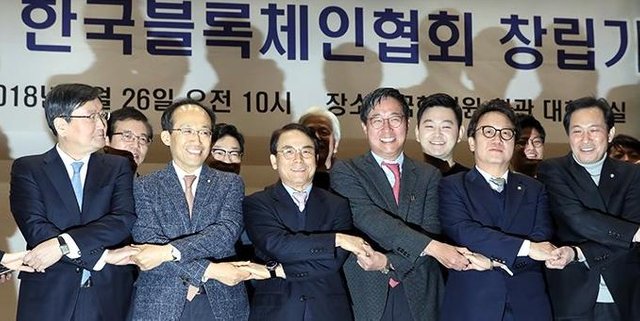Analysis of Korean Block Chain Association's results of domestic exchanges inspection
Hello.
It's Trp-Lee.
Today, at 11 o'clock, there were announcements of the results of some
cryptocurrency exchanges in Korea based on self-regulation of Korean Block Chain Association.
I would like to share with you some of my ideas came up
taking a look at the article.
To summarize it briefly, the Korean BlockChain Association has been examined the domestic exchanges for two months from April.
It is said that it has examined 12 Exchanges (Bitsum, Upbeat, Gofax, OK Coin Korea, Huovio Korea, Hanbitco, Neo Frame, Coin Gest, Coin Plug, Korea Digital Exchange, Korbit and Coinone).
As for contents of examination,
- Identification procedure to prevent money laundering
- User transaction records kept for 5 years
- Establishment of detection system of abnormal cryptocurrency transaction
- Notice of follow-up action in abnormal transaction
- Establishment of new cryptocurrency listing procedure
- Disclosure of information such as the price of listed cryptocurrency and foreign exchange price
- Subscribing more than KRW 2 billion of equity capital, financial statement, audit report, shareholder list, etc.
- Establish and adhere to the Ethics Charter for the protection of users and fulfillment of social responsibilities
And,
the result of the examination is ??
It is a wonder .. all of a sudden, all the exchanges were qualified.
They added that the insufficient part of the check exchanges will be improved in the future.
Because they were self-inspecting, I could expect that the result will not be bad.
However, to understand the result clearly, I carefully had a closer look at the content of the examination.
Identification procedure to prevent money laundering :
Already, the identity verification process is not a big deal in almost every field.User transaction records kept for 5 years :
This is nothing special. Just keep the data long.Establishment of detection system of abnormal cryptocurrency transaction :
The term 'abnormal' is not clear. Anyway, I suddenly came up with the hacking cases of Korean Exchanges just happend a few months ago. So..is the detection system really built?Notice of follow-up action in abnormal transaction :
Were the large exchanges notified of the after-action after the hacking incident? Nope...Establishment of new cryptocurrency listing procedure :
This is the area where the exchanges take care of themselves. In short, it is up to them. Nobody cares.Disclosure of information such as the price of listed cryptocurrency and foreign exchange price :
This is nothing special either.Subscribing more than 2 million $ of equity capital, financial statement, audit report, shareholder list, etc.:
I suppose that this is the key point of the examination!Establish and adhere to the Ethics Charter for the protection of users and fulfillment of social responsibilities :
Formal item and nothing special.
In my memory, there were only some hacking cases of domestic exchanges in the first half of this year.
I also remember that it was happend in one of the top-ranked exchanges in Korea.
If the exchanges that caused the problem were examined eligible and qulified under the self-regulation,
Where should we find the meaning of the examination?
If you really have more than 2 million dollors, you are then quilified? I hope it is not really working that way.
I suppose the primary purpose is to smooth the banking transactions and help exchanges get new users.
Actually, reading the article, there are other parts where I actually laughed.
"........we will strengthen the examination standard in the future." this is what the person in charge said lastly.
It sounds like the tyranny of the powerful.
In fact, Korean Blockchain Association does not allow small and new exchanges join the association.
My guess is like the follows :
- According to what the result say, now most of big major exchanges are qulified and eligible.
- Then, it is expected that the entry barriers will be raised by strengthening the examination criteria.
So that big companies take control more easily of Korean cryptocurrency market.
I remember what Vitalic Buterin said a few days ago.
"I hope the centralized cryptocurrency exchanges burnt in hell."
I feel centralized exchanges are a bit distant from decentralized, the original spirit of the block chain.
And the vested interests who are increasingly influencing the exchanges and dominating the market.
Is this all right?
Next time I will return with a pleasant subject.
Have a nice day :)
